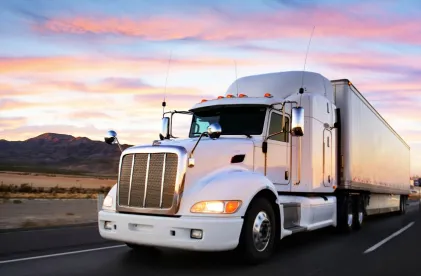The COVID-19 pandemic has created a tidal wave of regulatory changes in the trucking industry that are intended to help carriers meet the demands of the supply chain amidst increasing public health restraints.
One responsibility carriers have is to ensure their drivers stay in compliance with the Department of Transportation’s Federal Motor Carrier Safety Administration (FMCSA) requirements. These requirements cover everything from licensing to health screening to vehicle maintenance. But what do drivers and carriers do when they are unable to meet these requirements because the necessary service providers are closed or unable to book appointments?
These logistical concerns resonates with those in the industry. “Drivers need to be certain they are operating under compliance at all times, but the suspension of many federal and state operations and closure of important facilities has made this extremely difficult, if not impossible, for many truckers,” Todd Spencer, president and CEO of the Owner-Operator Independent Drivers Association wrote in a letter to President Donald Trump.
To facilitate the ability of carriers to maintain continuous transportation of goods, the Department of Transportation’s Office for Drug and Alcohol Policy Compliance (ODAPC) has put forth new guidance on allowing carriers the ability to delay reporting random drug tests.
Drug and alcohol testing standards
Drug and alcohol screening has been a part of DOT requirements since the Omnibus Transportation Employee Testing Act went into effect 1991. CDL drivers must pass a mandatory drug screening prior to being employed by a carrier and following any crashes.
CDL drivers are also randomly tested throughout the year if their employer has reasonable suspicion that the driver is under the influence and if a driver returns to duty following a positive drug test.
Despite the testing requirements, drug use has been on the rise in the trucking industry in recent years. According to Science Daily, researchers noted that across 36 studies between 2000 and 2013, as many as 91% of truckers worldwide drank alcohol and 82.5% used amphetamines. Usage was highest in the United States, with truckers in the United States having the highest frequency of positive tests for alcohol at 12.5 percent of American-based drivers.
Exceptions for COVID-19
The DOT’s new guidelines address several points for carriers. The most notable regulatory change allows carriers to postpone random drug testing as long as the required number of tests is completed by the end of the year. Carriers must document in writing the reasons they are unable to complete said testing.
Testing for drivers post-accident and for reasonable suspicion of drug or alcohol abuse may be postponed as long as efforts to obtain testing are documented. However, the DOT is not waiving a motor carrier’s obligation to conduct a pre-employment drug test before putting that driver behind the wheel or for return-to-duty testing.
Unlike the easing of hours of service regulations or CDL renewals, this new position hasn’t fundamentally changed the Department of Transportation’s position on drug and alcohol testing.
“The guidance does not provide much leeway or relief beyond what’s already in the regulations,” comments Dave Osiecki, the president of Scopelitis Transportation Consulting, but notes that it’s not without value to carriers. “It’s helpful for the regulated industries to hear from DOT on this issue, especially since it reminds them of the need to document the challenges to getting a test done.”
Concerns in the trucking industry
This position lines up with recent attitudes towards drug and alcohol testing in the DOT. In 2019, the FMCSA announced that it was doubling the minimum annual percentage rate for random drug tests from 25% to 50% percent as a response to the increase in positive drug test results.
Even more notably, in January 2020, FMCSA rolled out the Drug & Alcohol Clearinghouse, an online database intended to provide authorized users, such as employers, FMCSA, state driver licensing agencies, and state law enforcement agents, with access to driving records for CDL and CLP holders. These records will track drug and alcohol program violations.



 />i
/>i
